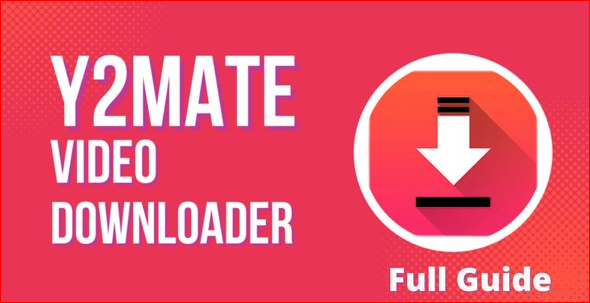y2Mate
In the digital age, access to online content is easier than ever. With platforms like YouTube offering a vast array of videos, from music and tutorials to full-length movies, it’s no wonder that tools like Y2Mate have gained popularity. Y2Mate is an online video downloader that allows users to save videos and audio files directly from YouTube and other streaming platforms. But with this convenience comes a pressing question: Is Y2Mate legal? The answer is complex, involving considerations of copyright law, terms of service, and ethical concerns.
| App | Youtubepromod Apk |
| Genre | Video player |
| Price | Free |
| Language | English |
| Version | Latest |
Understanding Y2Mate
Y2Mate is a web-based service that allows users to download videos and convert them into different formats, such as MP4, MP3, and more. It has become a go-to tool for those who want to save their favorite content for offline viewing. Its ease of use and ability to convert content into different formats make it particularly appealing. However, the legality of its usage is a grey area.
Copyright Law and Y2Mate
The primary legal issue surrounding Y2Mate relates to copyright law. Copyright protects the rights of content creators, ensuring that they have control over how their work is used and distributed. When a user downloads a video from YouTube using Y2Mate, they are essentially creating a copy of that video without the content creator’s permission. This action may violate copyright laws, especially if the content is downloaded for commercial use or distribution.
YouTube’s Terms of Service (ToS) explicitly prohibit the downloading of videos without the site’s permission. According to YouTube’s ToS, users are not allowed to access, reproduce, download, distribute, or display content through any means other than the platform’s own interface, which does not support direct downloading. Therefore, using Y2Mate to download YouTube videos breaches YouTube’s ToS.
Legal Consequences
The use of Y2Mate could potentially lead to legal consequences, both for the operators of the service and its users. For the service operators, facilitating the download of copyrighted content without permission can lead to lawsuits and legal action from content creators and copyright holders. These actions could result in the shutdown of the service, fines, or other penalties.
For individual users, the risk of legal repercussions is typically lower but not nonexistent. While it is uncommon for copyright holders to pursue legal action against individual downloaders, it is still possible. Users may face cease-and-desist orders, fines, or other legal consequences if they are found to be violating copyright laws on a large scale or for commercial purposes.
Ethical Considerations
Beyond legal implications, there are ethical considerations to ponder. Content creators, including musicians, filmmakers, and educators, rely on platforms like YouTube to distribute their work and generate income through ad revenue, subscriptions, and other monetization methods. Downloading content via Y2Mate can deprive these creators of their deserved revenue, undermining their ability to continue producing content. Ethically, supporting content creators by consuming their work through legitimate channels is a more responsible choice.
Exceptions and Legal Uses
There are scenarios where downloading videos might not be illegal. For example, some content on YouTube is licensed under Creative Commons, which allows users to download, share, and sometimes modify content, provided they give proper attribution. Additionally, educational and personal use under the doctrine of “fair use” might be permissible in certain jurisdictions, although this is often determined on a case-by-case basis and can be legally complex.
Conclusion
The question of whether Y2Mate is illegal hinges on how it is used and the context in which content is downloaded. While the tool itself is not inherently illegal, its use to download copyrighted material without permission likely violates copyright laws and the terms of service of platforms like YouTube. Users should exercise caution, consider the legal and ethical implications, and support content creators by using legitimate means to access and enjoy online content.

